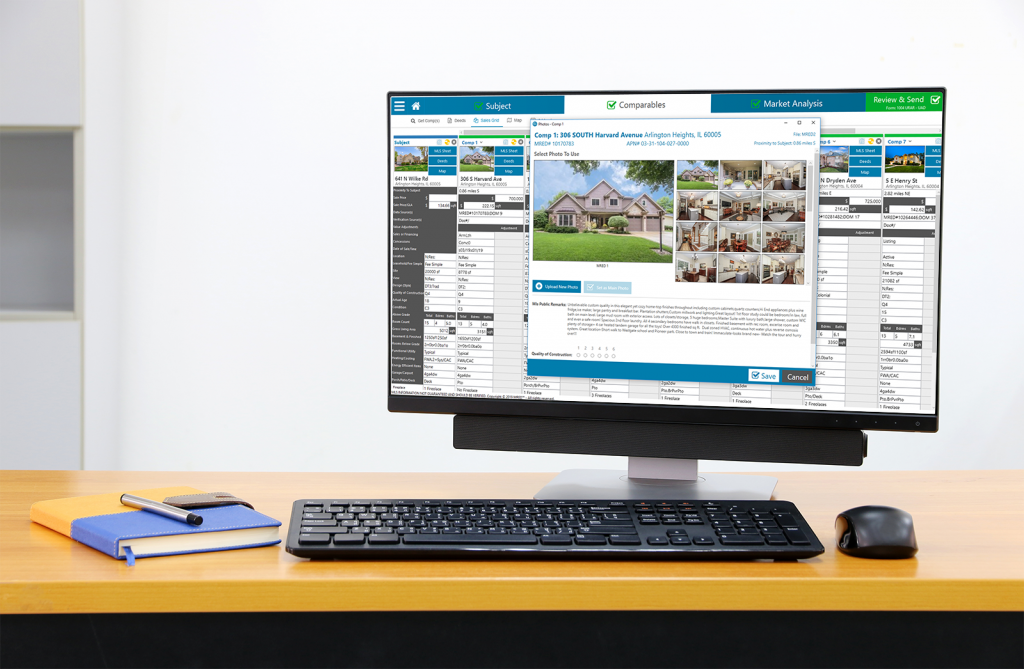How to Make More Money as an Appraiser: Manage Business Expenses


Welcome to the fourth installment in our series on “How to Make More Money as an Appraiser!”
Managing Expenses
Part of making more money is knowing how to manage your expenses! Managing expenses is a broad subject that is dissected in thousands of books, taught frequently in company trainings, and introduced on high school and university campuses throughout the world. Such a broad subject might mean that this post is going to be really long, but never fear! I’ve curated some of the best ideas for this short article (yes, it will be short!), and with expert input from Rick Lifferth, DataMaster’s founder, it’s all here for a quick read.
Let’s see what you can learn today to work into your money-managing processes!
Live on Less!
Rick Lifferth, DataMaster founder and CEO and appraiser for over 47 years, sat down with me and shared a couple of his most important financial lessons learned.
For the first few years of business ownership, Rick had a silent partner. He did not realize how much of an impact that partner had. This silent partner took 20-30+% of his revenue every year! When Rick hired employees, he had to pay half of their FICA taxes to this silent partner.
Every year when tax time came around, the silent partner took its enormous cut. The tax bill was always surprisingly high and usually came as a shock to Rick. When he was starting out, he had no idea just how much this silent partner was going to take from his business. As you have deduced, that silent partner was (and still is) the government.
It took a few years, but when Rick finally realized that his silent partner wasn’t ever going to quit and would always be around, taking its monstrous cut of revenue, he came to a realization. This realization was the most significant financial lesson that Rick has learned learned from his 47 years of business ownership. The realization was this: he had to learn to live on less!
Rick also realized that he had forgotten the difference between revenue and spendable income. Once he remembered that there was a difference between these two key aspects of finance, and accepted that he had to live on less, things went much better and his business grew. He also took steps to prepare for tax day by stashing the tax money into a separate account every pay period.
Rick’s lesson made a significant impact on his business. He now employs over 45 employees and his company continues to grow!
How Do You Live on Less?
You might be wondering how to live on less when it seems as if you’ve slashed every extra expense you have.
Rick observed that:
The difference between a rich person and a poor person is the ability to save on a regular basis. Obviously, there are many circumstances in life that preclude being able to save, but save when you can, even if it is only $5 per month. You will feel better about yourself and improve yourself confidence.”
Here are more helpful tips to consider:
- Drive a cheaper car and drive it longer
- Pay less for a house than the mortgage company will give you
- Track your daily spending on everything, including the little things
- Eat home-cooked meals more often
- Buy generic brands when possible
- Shop at discount clothing outlets
Living on less entails changing your entire mindset. It means developing an awareness that the little things add up and that big things don’t need to be quite so big!
Looking for more ideas for how to cut spending? Here is a fantastic article that shares 42 ways to spend less. These are doable, clever ideas that you’ll wish you’d known about sooner! Check out “How to Live on Less Money: 42 Hacks to Thrive by Veneta Lusk.
Raise Your Rates!
Rick not only shared the number one lesson he’s learned over the last 47 years, he shared the second most important lesson that he learned: occasionally raise your rates on your regular cadences !
Let me explain.
As Rick was learning how to operate his appraisal business at a profit (something all successful business owners must figure out sooner or later!) he learned how to navigate not only the ups and downs of cash flow, but also the ever increasing costs associated with owning a business.
For example, when new requirements from Fannie and Freddie increased the length of time that it took to complete the appraisals, Rick realized that he had to increase his fees or go broke by working for nothing. He had to determine “which broke [he] would rather be.” His choice was to keep his fees at the current rate and slowly go broke or raise his fees to an amount that would allow him to stay in business, which in his mind typically raised the risk of losing customers. Rick also realized that nobody would have the benefit of his knowledge and expertise if he was out of business. He needed to do what it reasonably took to stay afloat!
Early in his career, this decision was very difficult and scary. Over time, it became much easier. Increasing his fees happened about every 3 years or so, but the increases were relatively small and reasonable. While he may have lost a customer here and there, it was usually only for a short period of time. Most customers understood the need for increased fees and agreed to pay more for appraisals, especially after enjoying a 3-year period of stable appraisal fees.
Rick feels fortunate to have been able charge enough for his appraisal services to stay in business for 47 years. His impact on the appraisal business has been significant!
Automate
Let’s look at a couple more tips that will help you save money!
Any expense process that can be automated should be automated! This not only saves you time, it saves you money in the long run!
A long-time favorite of business owners is Quickbooks. PC Magazine labeled Quickbooks “Editor’s Choice” and gave the software a 4.5 out of 5 star rating. Easy to use and accompanied by good support, Quickbooks claims that they “keep everything organized in one place, so you’re tax ready all the time.” They connect your bank accounts, sort your expenditures into categories, and save you money on taxes (the company states that “QuickBooks customers find on average $3,534 in tax savings per year.”)!
If you want to look around at other financial software a bit more, here are some other good options:
Harness Technology
One of our favorite sayings around here is “Give some time, so you can save some time!” It takes some time to learn how to use technology that will give you far more time then you invested in it! If you can spend an hour or two learning something then use what you learned to save you weeks of work a year, wouldn’t you do it?
Yes, I’m talking about learning how to use DataMaster! Thousands of appraisers have figured out this time-saving, money-saving tool and they use it to manage their time!
How much time does the appraisal data management software save you? Depending on your level of expertise, DataMaster saves you an hour or more on every-single-one of your appraisals! Think about the long-term implications of that number! Depending on how many appraisals you do a day, a week, a month, and a year, you could potentially save weeks of work every year! What would you do with an extra few weeks a year? More work? More vacation?
The possibilities are definitely worth finding out more! Go to datamasterusa.com or call us at 801.657.5769.
Cashing Out
Interested in more tips on how you can make more money as an appraiser?Take a look at the first three installments in this series:
- How to Make More Money as an Appraiser: Managing Time
- How to Make More Money as an Appraiser: Upgrade Certifications
- How to Make More Money as an Appraiser: Human Capital
There’s more to come! Catch a few more installments coming over the next few weeks!
If you have any insights from your own experiences, please share them in the comments! We would love to hear your tips!
Happy Appraising!


